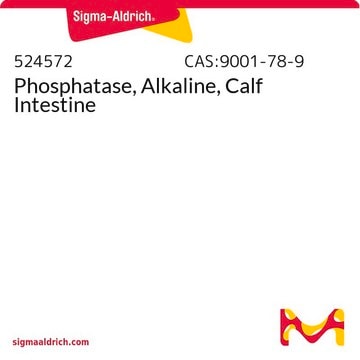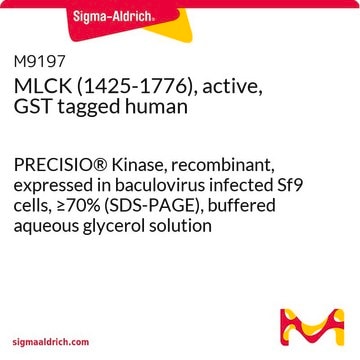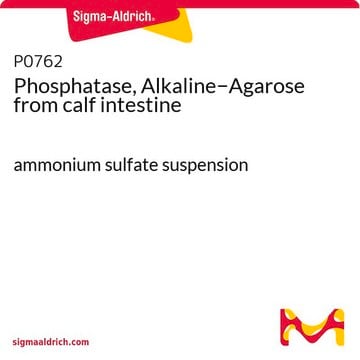A2356
Phosphatase, Alkaline from bovine intestinal mucosa
≥5,500 DEA units/mg protein
Synonym(s):
Alkaline phosphatase, Orthophosphoric-monoester phosphohydrolase (alkaline optimum)
About This Item
Recommended Products
form
(Solution in 40% glycerol containing 6 mM Tris, 6 mM MgCl2 and 0.12 mM ZnCl2, pH approximately 7.6)
specific activity
≥5,500 DEA units/mg protein
mol wt
dimer ~160 kDa
concentration
≥10 mg/mL
storage temp.
2-8°C
Looking for similar products? Visit Product Comparison Guide
Application
Biochem/physiol Actions
Physical properties
Unit Definition
Physical form
Analysis Note
Signal Word
Danger
Hazard Statements
Precautionary Statements
Hazard Classifications
Resp. Sens. 1
Storage Class Code
10 - Combustible liquids
WGK
WGK 1
Flash Point(F)
Not applicable
Flash Point(C)
Not applicable
Personal Protective Equipment
Regulatory Listings
Regulatory Listings are mainly provided for chemical products. Only limited information can be provided here for non-chemical products. No entry means none of the components are listed. It is the user’s obligation to ensure the safe and legal use of the product.
JAN Code
A2356-VAR:
A2356-10KU:
A2356-50KU:
A2356-BULK:
Certificates of Analysis (COA)
Search for Certificates of Analysis (COA) by entering the products Lot/Batch Number. Lot and Batch Numbers can be found on a product’s label following the words ‘Lot’ or ‘Batch’.
Already Own This Product?
Find documentation for the products that you have recently purchased in the Document Library.
Customers Also Viewed
Protocols
Enzymatic Assay of Alkaline Phosphatase, Diethanolamine Assay (EC 3. 1. 3. 1)
Our team of scientists has experience in all areas of research including Life Science, Material Science, Chemical Synthesis, Chromatography, Analytical and many others.
Contact Technical Service








